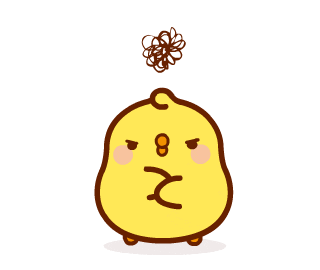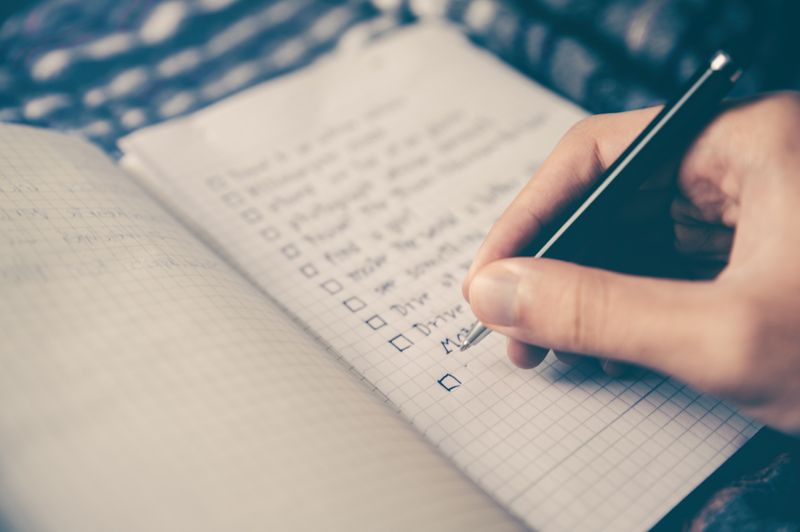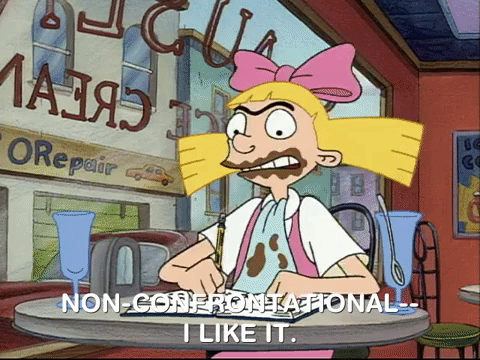Do you often lash out at people and later regret it?
Do you have a really tough time sticking up for yourself when someone is putting you down?
Have jealous reactions ever gotten in the way of your relationships?

Sometimes we get stuck in negative habits when we respond to tough situations. These become ingrained as patterns. Acknowledging and understanding your emotional reaction patterns will help you:
kick bad habits
strengthen your self-esteem
have healthier relationships with others and yourself
What Is A Response Pattern?

Our emotions play a big role in how we react to certain situations. Emotions generally have three components:
thoughts (e.g. he makes fun of my idea)
feelings (e.g. which makes me feel hurt)
actions (e.g. so I withdraw)
Our emotional responses get strengthened by our neural pathways, and these reactions can become habits with enough repetition. We might not even notice it happening.
But thankfully, we can become more aware of these patterns by paying close attention to what we think, how we feel, and how we react.
How Do I Identify My Response Patterns?
Ask yourself questions:
Think of an uncomfortable or challenging situation you've been in, then ask yourself:
What situation was I in?
What emotions was I feeling?
What thoughts was I having?
How was I behaving?
Have I noticed this pattern before?
What happened to trigger this reaction?
How do I wish I reacted?
Start a journal:
Sometimes it's hard to think back to all of the details of the past. Start a journal using the same questions above to identify your emotional patterns going forward.
Ask a friend or family member:
Ask a trusted friend or family member if they've noticed any patterns you've displayed in certain situations. Let them know you're looking to make positive changes.
The key here is not to be defensive or feel judged. You're using their insights to help you learn and grow. Take everything with a grain of salt, but pay attention to patterns that occur in different people's responses.
Analyze what you've learned:
Now that you've gathered the information, do you notice specific patterns or trends?
Example
Greg has identified some recent situations that he found emotionally challenging:
Situation 1
Greg was working towards a deadline, when a new colleague kept asking him questions. Greg lashed out and told his coworker to figure it out themselves because he didn't have time to walk them through it.
Situation 2
Greg was late for work. He was rushing to catch the next bus and saw it pull away just as he was arriving. Greg threw his bag on the ground in frustration.
Situation 3
Greg's partner forgot to get milk when grocery shopping. The milk was a key ingredient in a recipe Greg planned to make for his partner. Instead of problem-solving, Greg raised his voice and insulted his partner.
Quiz
What could Greg's response pattern be?
Subscribe for more quick bites of learning delivered to your inbox.
Unsubscribe anytime. No spam. 🙂
Then What?
 Photo by Glenn Carstens-Peters on Unsplash
Photo by Glenn Carstens-Peters on UnsplashCome up with an improvement plan to change your negative response patterns.
Describe the type of situation in which you typically have this response
Describe the response you'd normally have
Re-write that response into how you wish you could react
Example 1

Situation: Brianna's sister shows off her new dress.
Old Response: Brianna feels ashamed of her body, because she doesn't think it looks as good as her sister's. Brianna tells her sister that she doesn't like her new dress.
Desired New Response: Brianna reminds herself that all bodies are different and beautiful. Brianna thinks of all of the things about herself that she loves, and how nice it feels when she receives a compliment. Brianna supports her sister by telling her that her new dress looks great.
Example 2
Situation: Ash just got a D back on their test.
Old Response: Ash feels like they failed and doesn't feel smart anymore. Ash knows this is common any time they receive a grade lower than an A. They don't see the point in studying for the rest of their exams.
Desired New Response: Take the quiz below!
Quiz
What could Ash's new response look like?
Did you know?
Take Action

Ready for some self-improvement?
Your feedback matters to us.
This Byte helped me better understand the topic.
